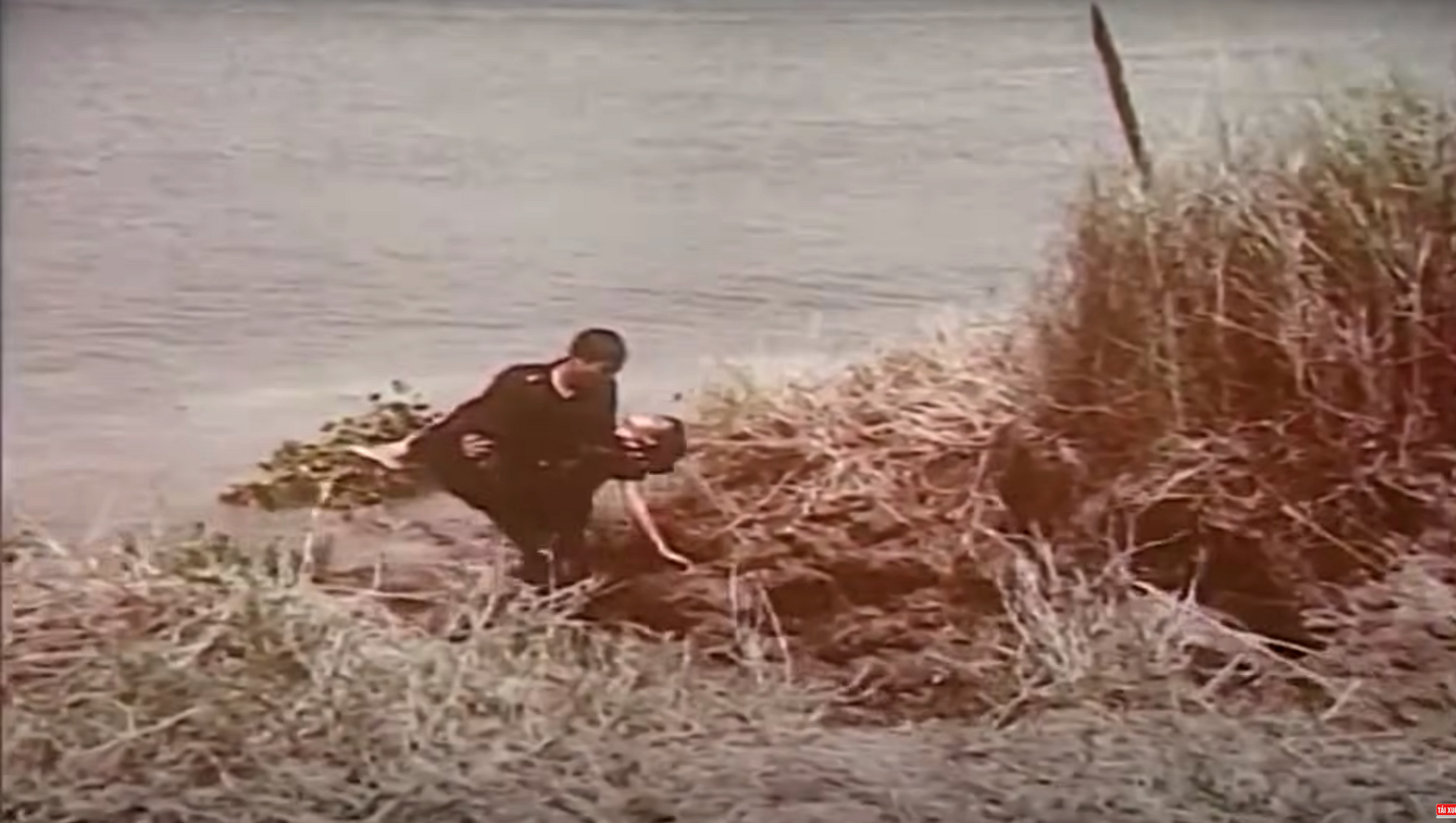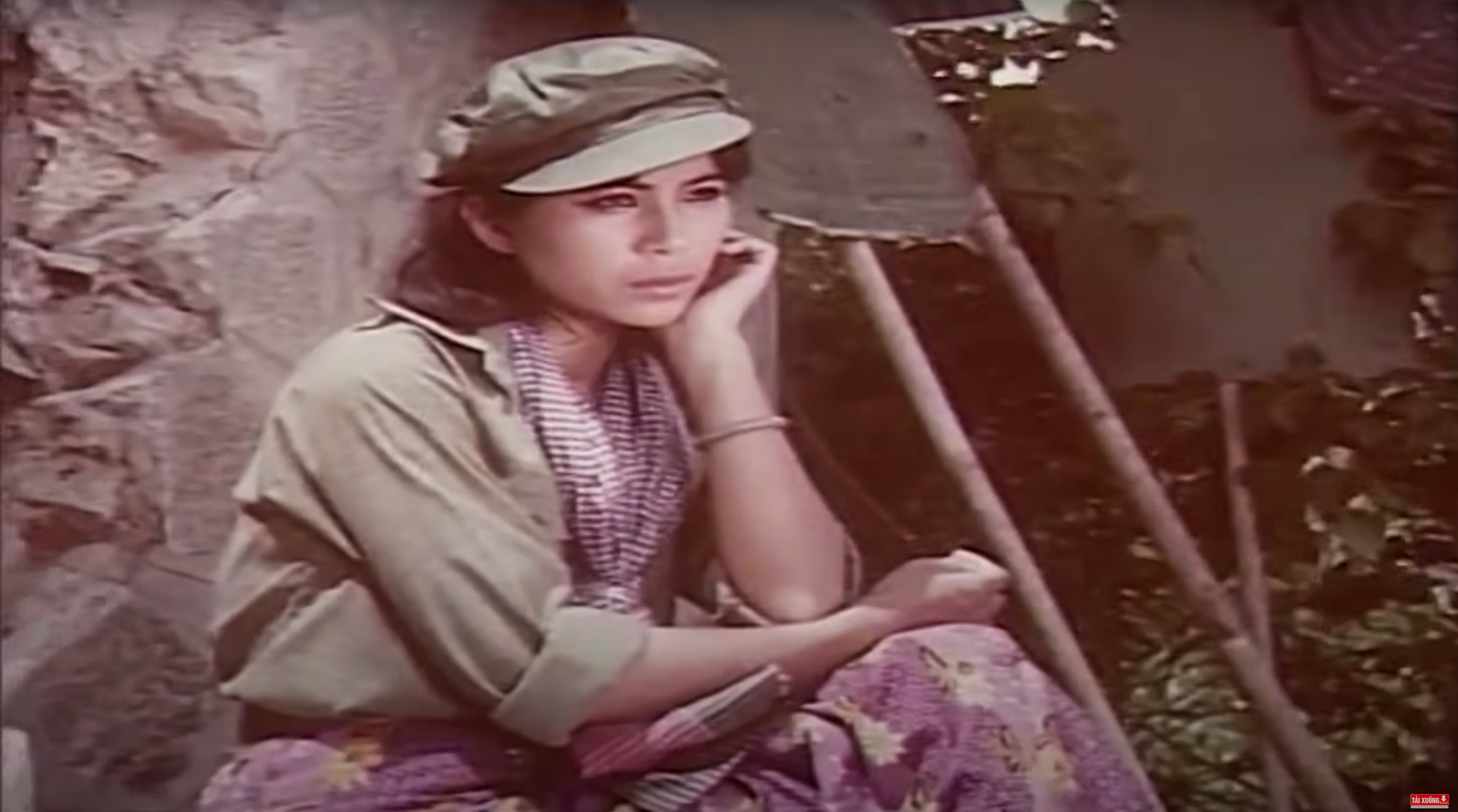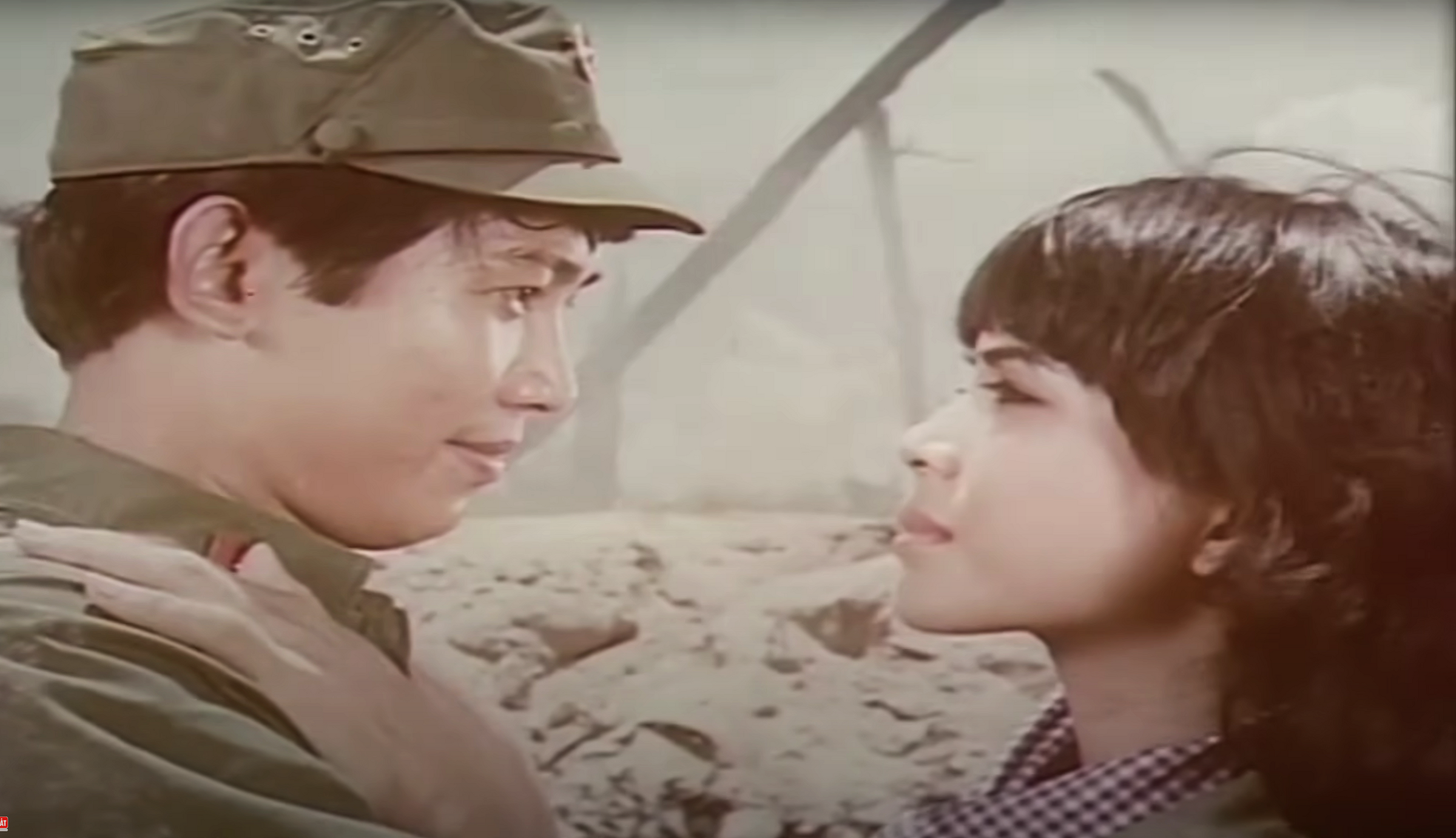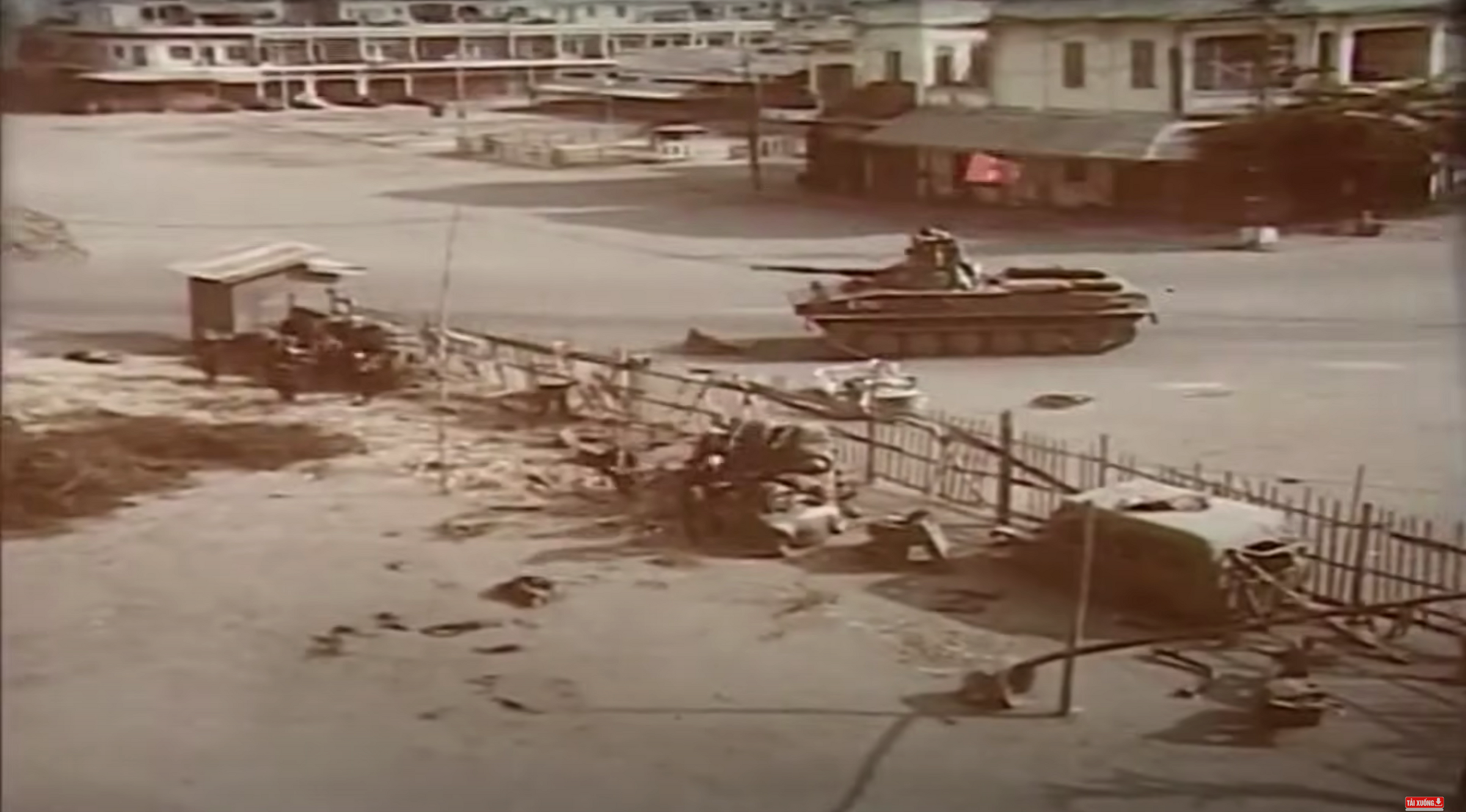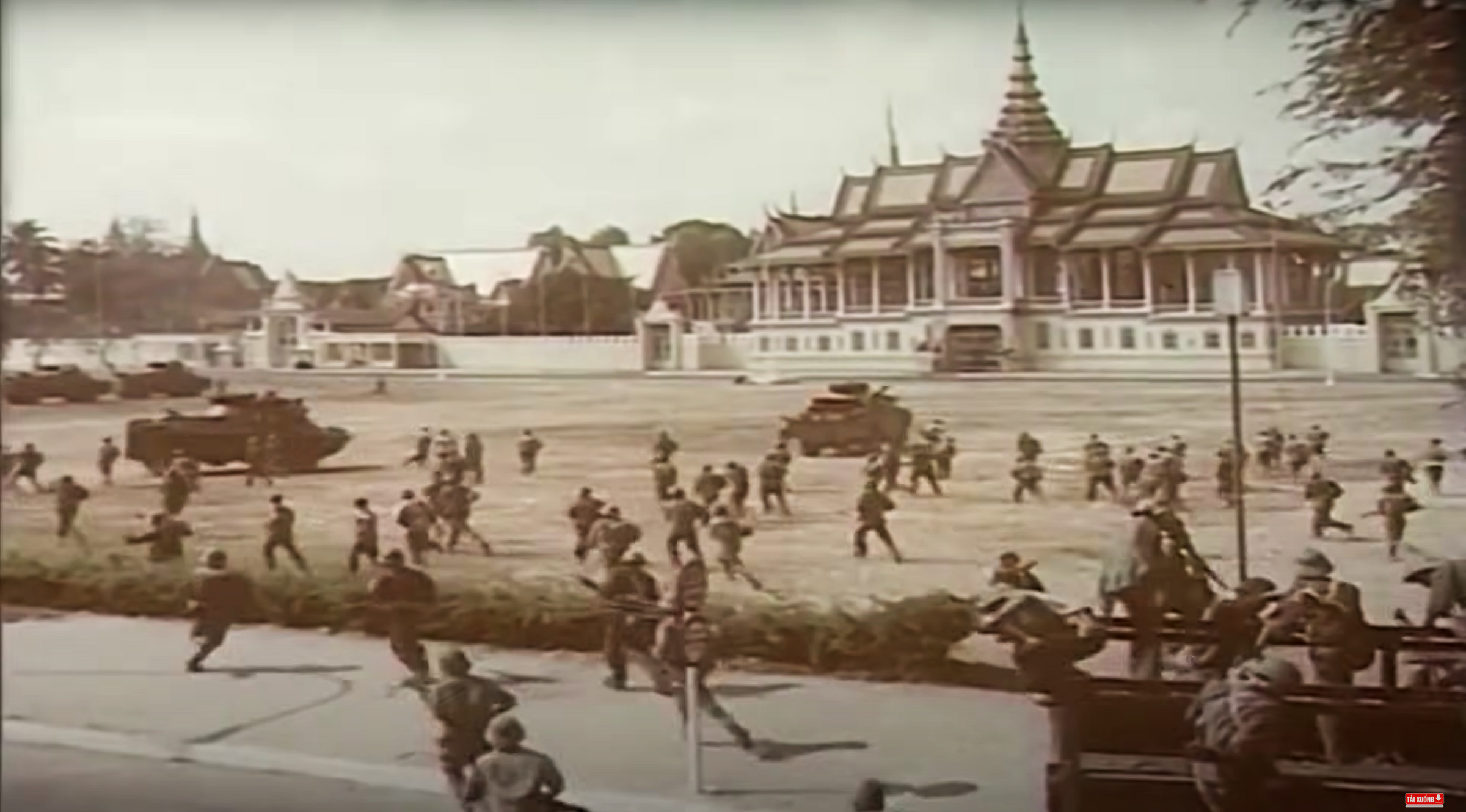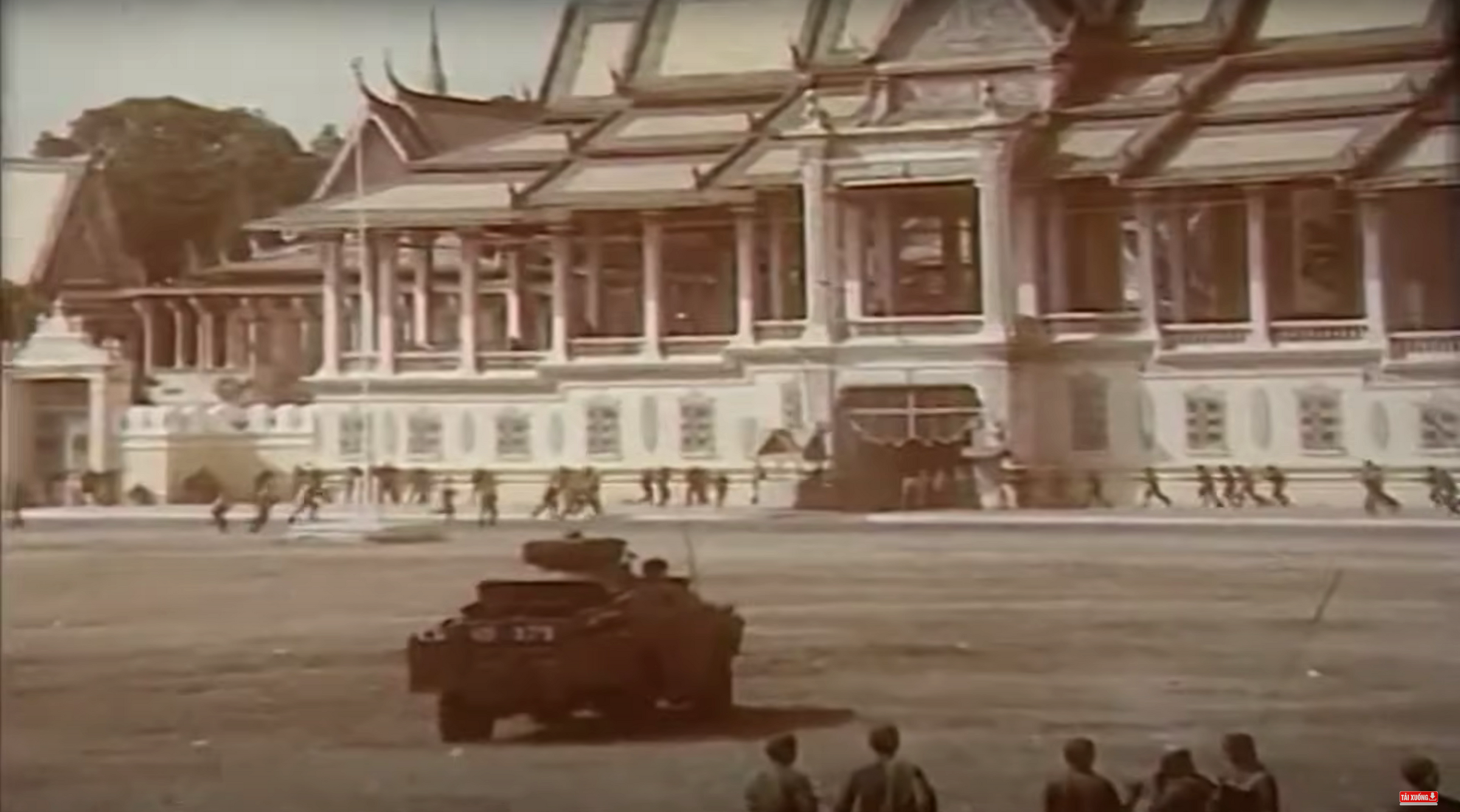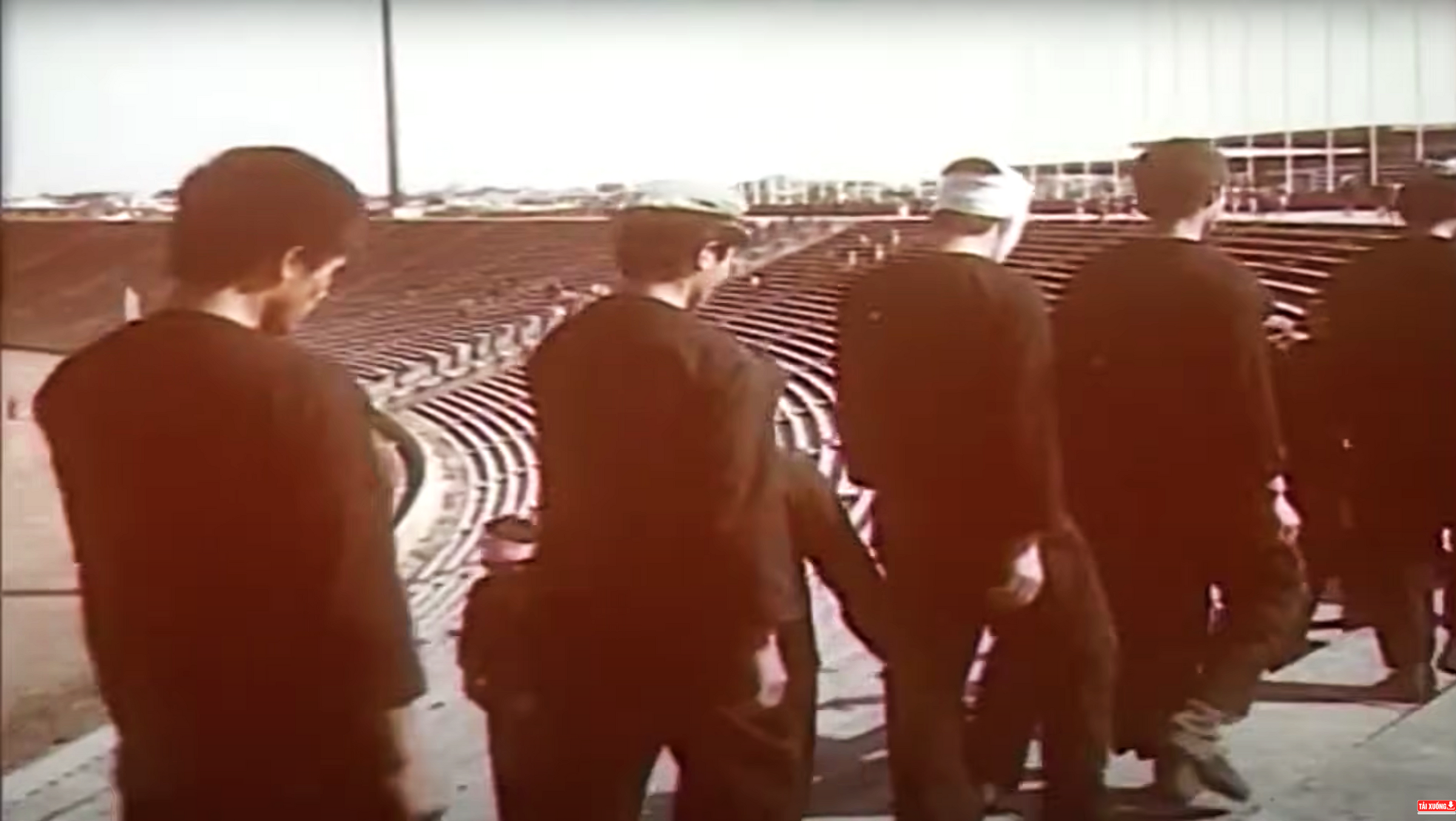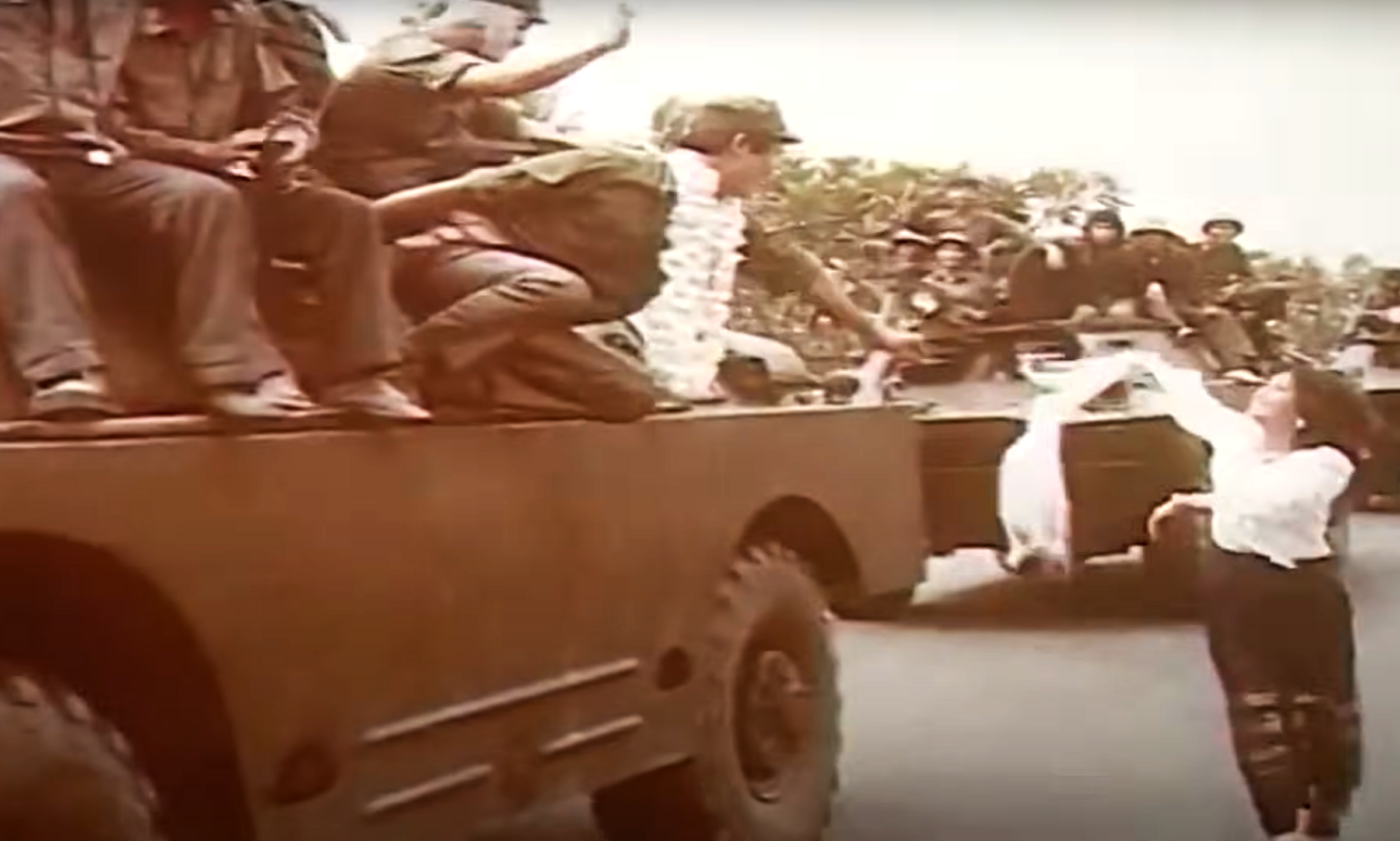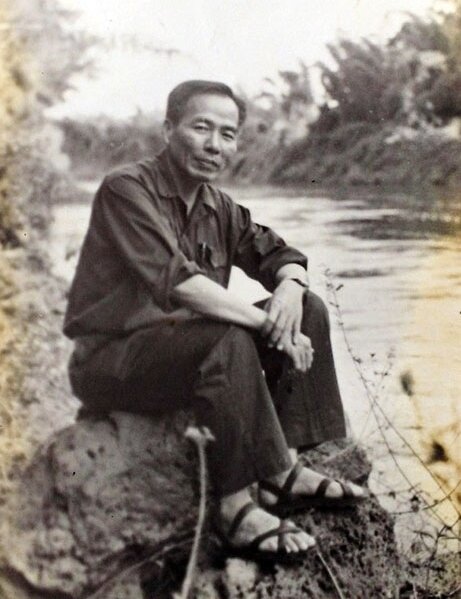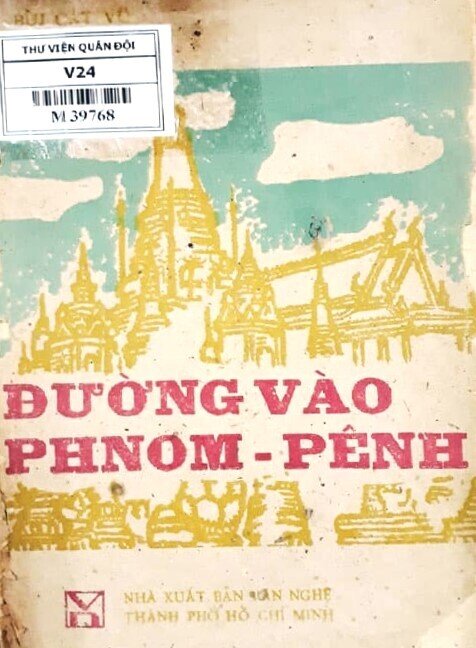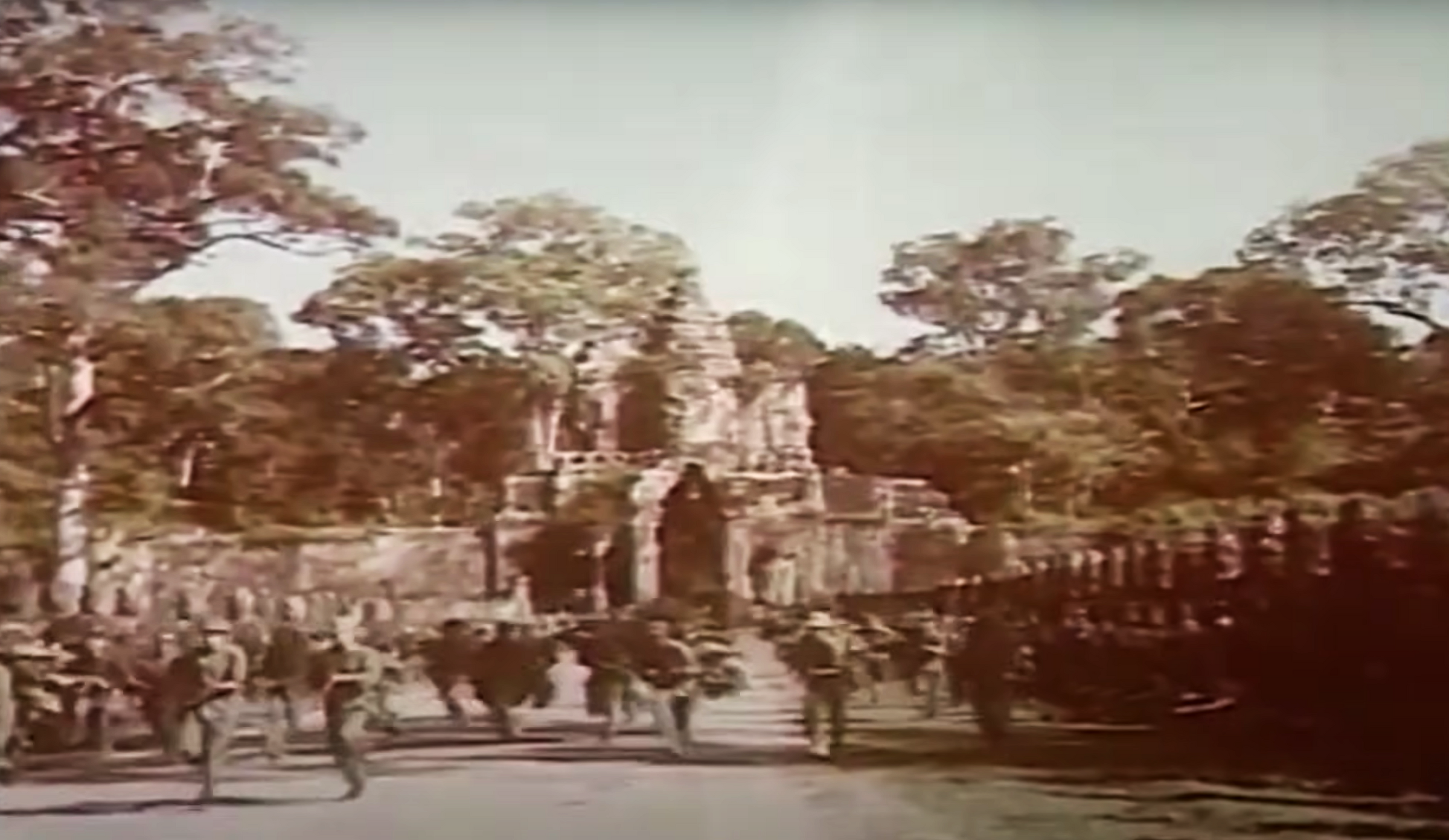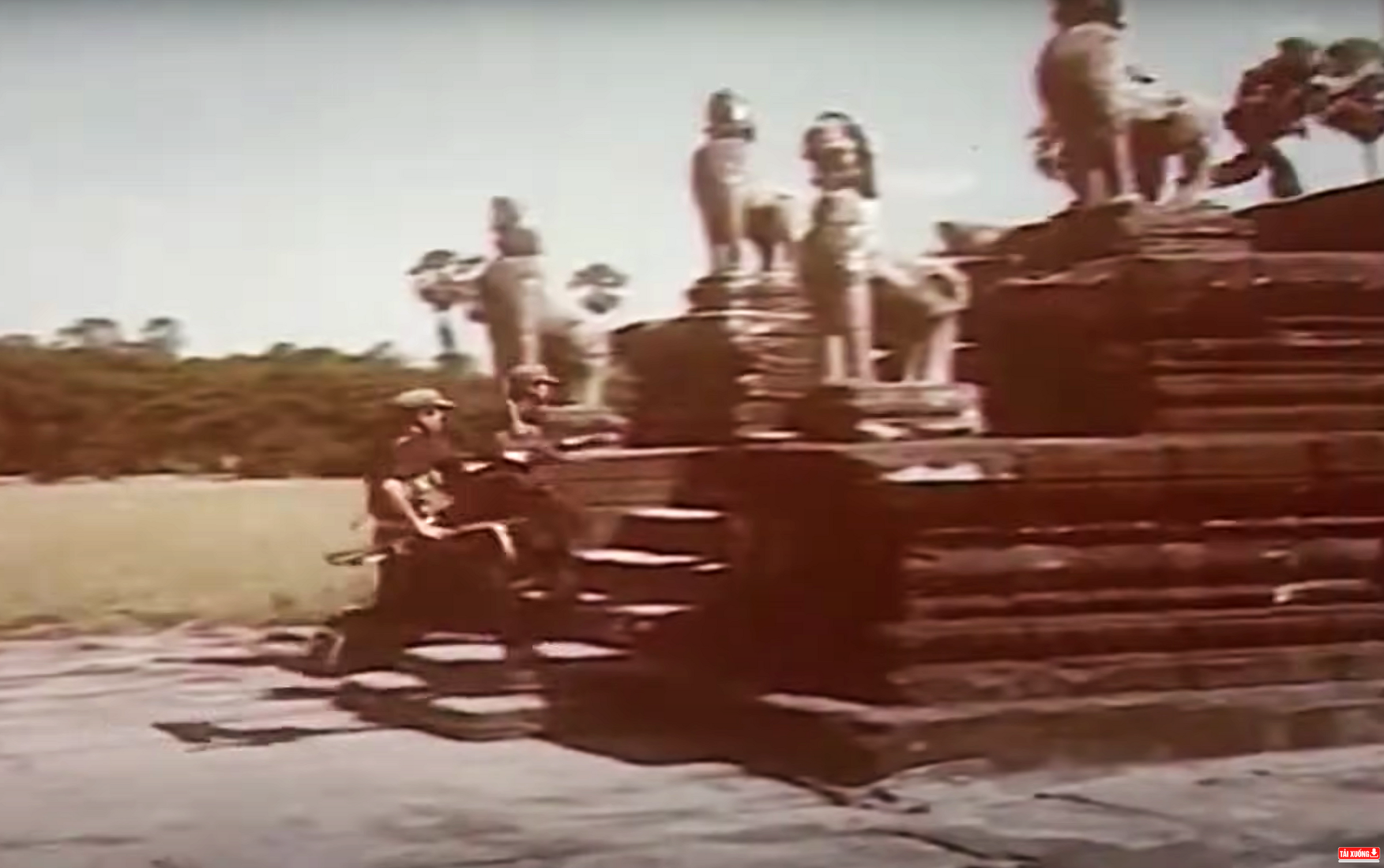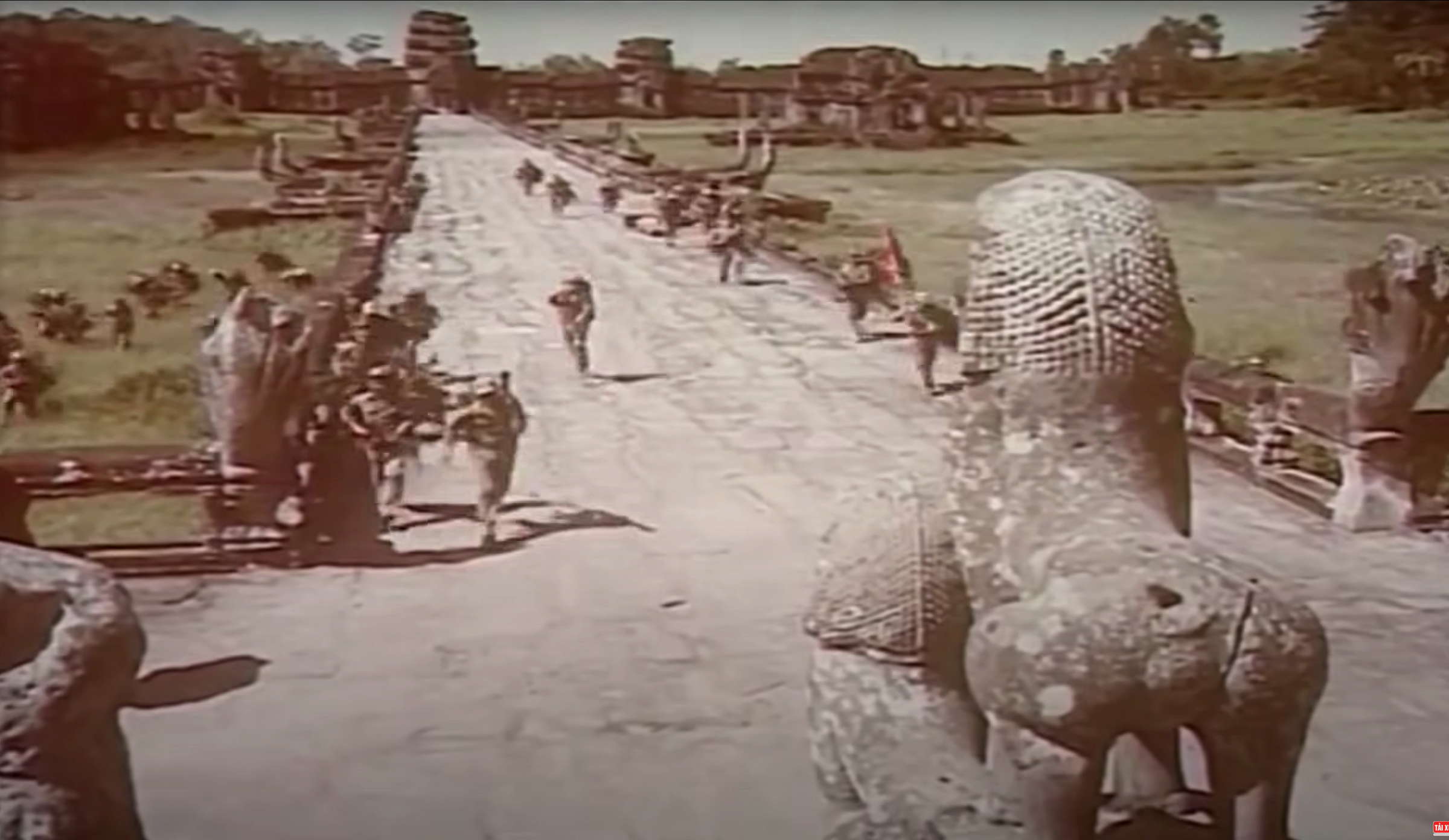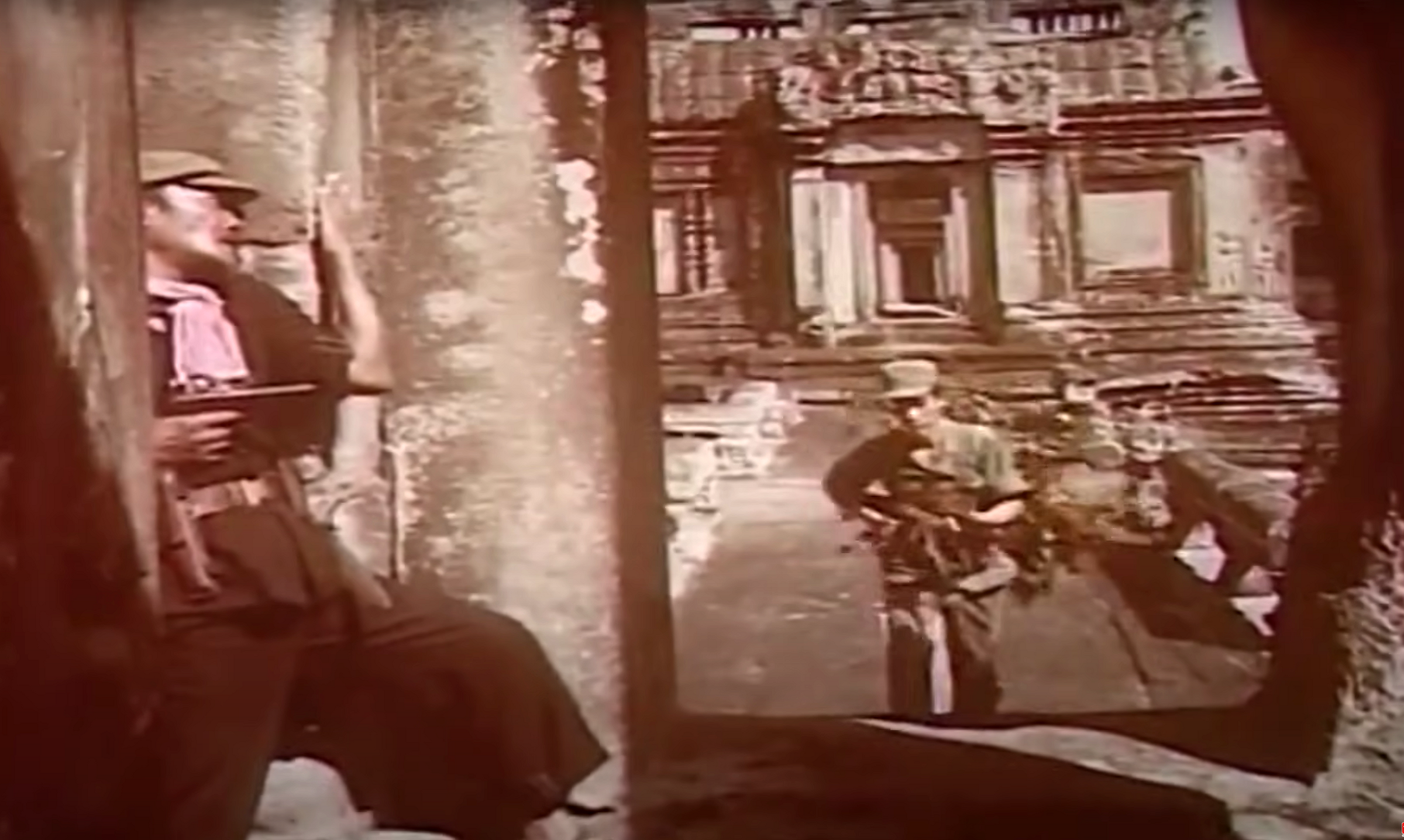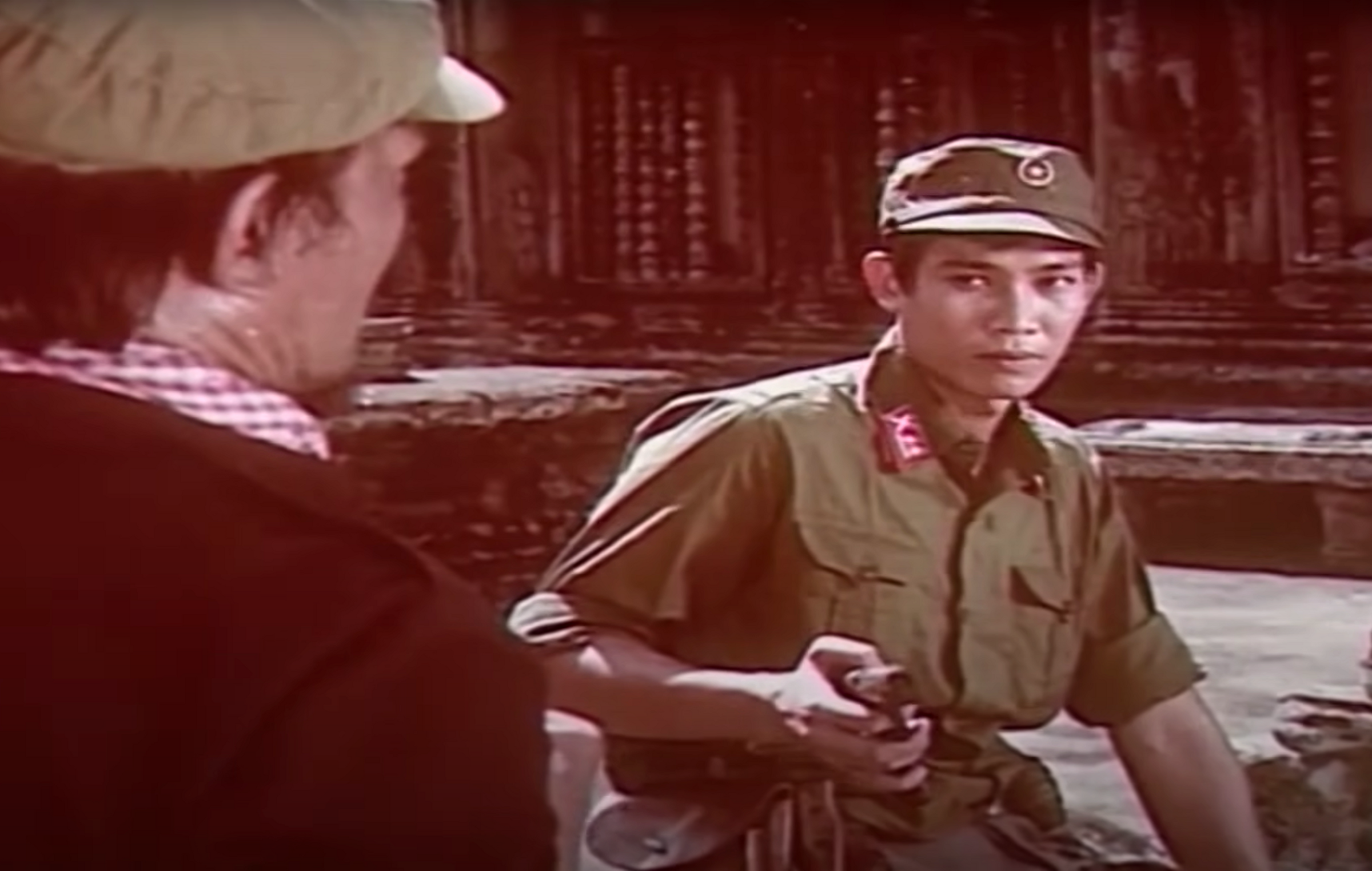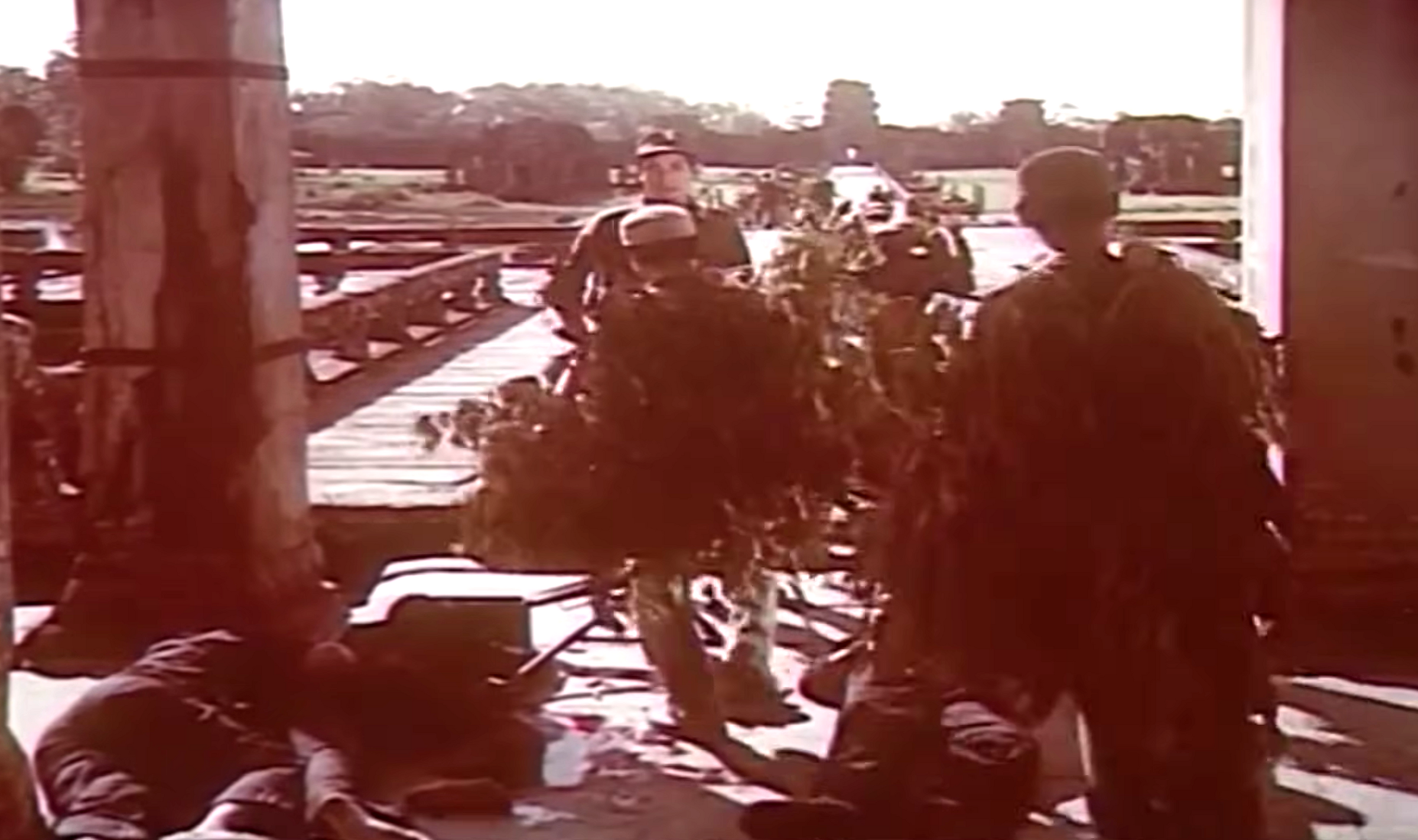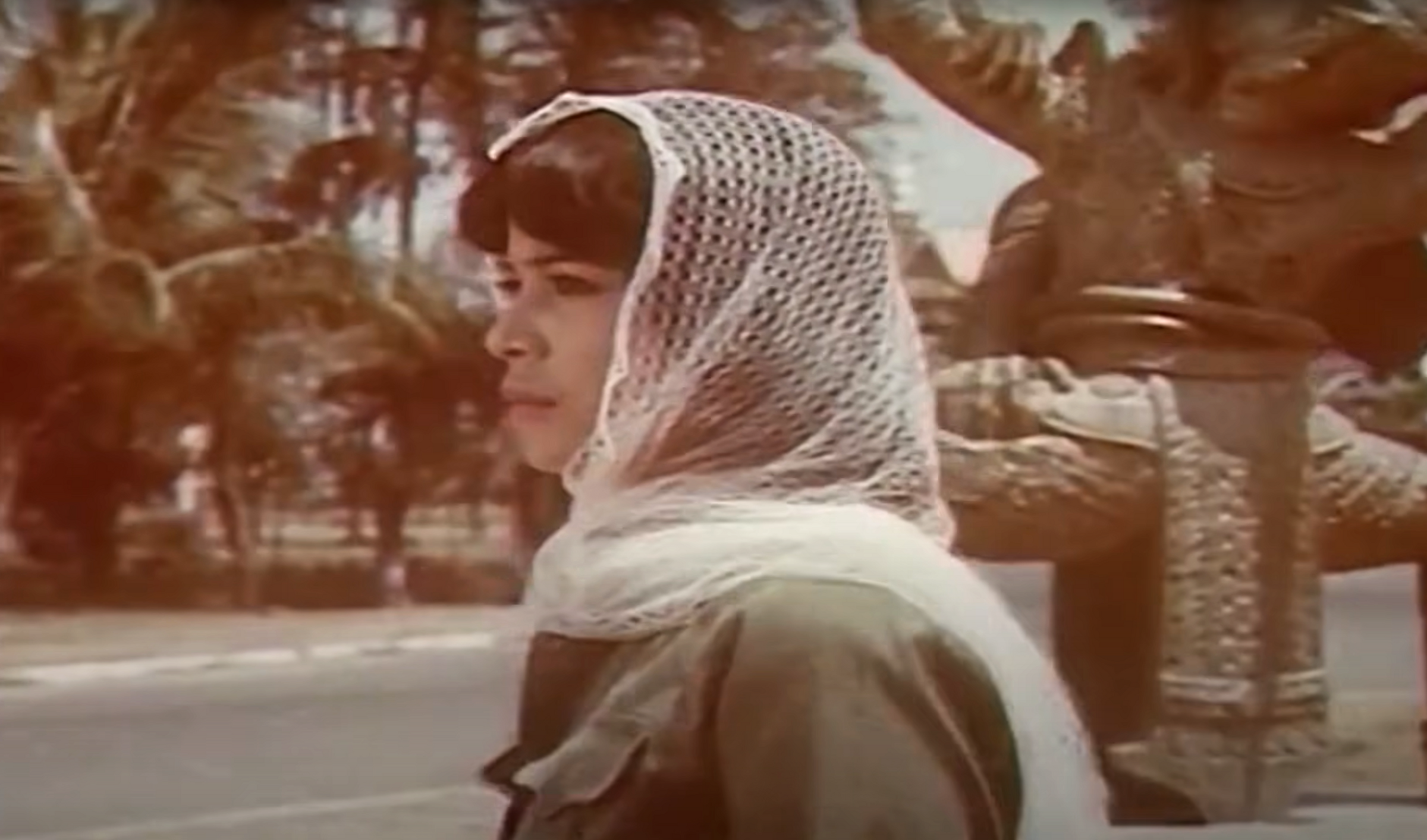Thanh Pho Co Nguoi [City with People]
Angkor and Phnom Penh taken back from the Khmer Rouge in 1979: a rare and highly documented feature movie from Vietnam.
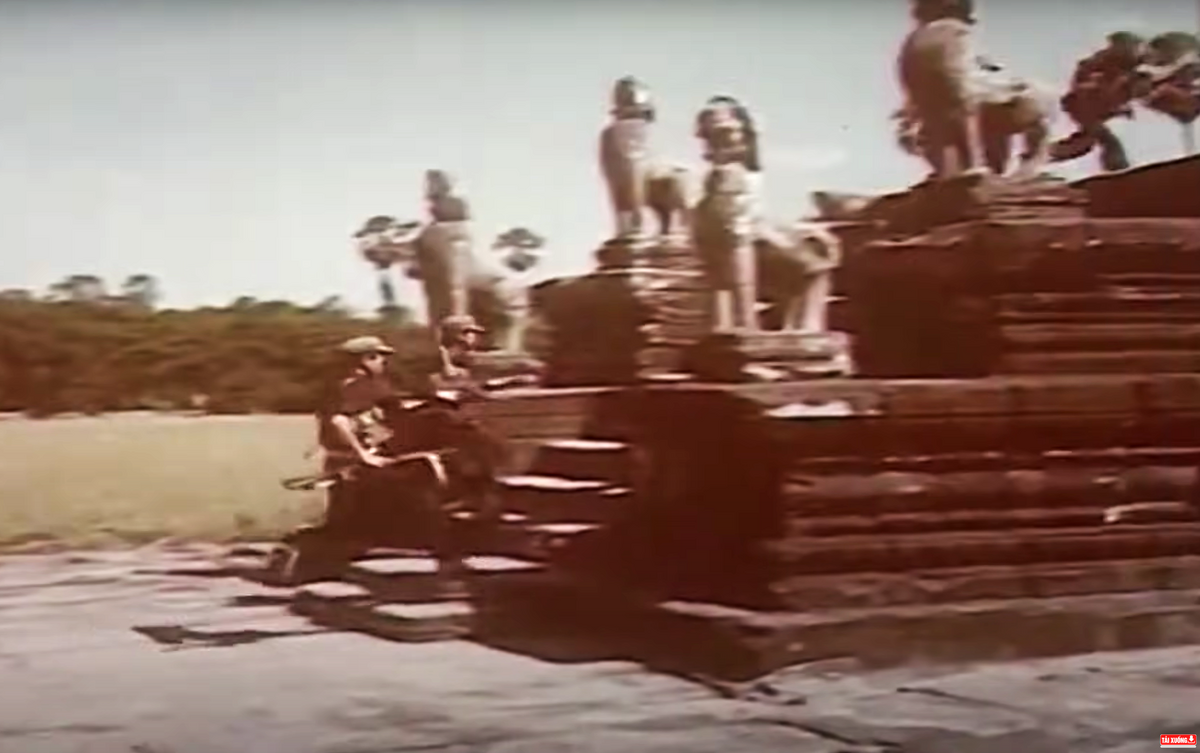
- Published
- 1986
- Language
- Vietnamese
The feature movie action starts precisely on April 15, 1975, when Khmer Rouge forces took over Phnom Penh. Happy Cambodian middle-class couples share dinner and dance on Johan Strauss’ waltz music, unaware that doctors and other literate people are being rounded up. A KR commando storms the place, arrests the revelers, separates women from men and kills one of them.
Later, a Vietnamese officer stuck in a trench under heavy bombing daydreams by the Mekong River, and one of his soldiers — ‘combat brothers’, to use the Vietnamese Army lingo — rescues a Cambodian woman adrift in the water, a fugitive from a Khmer Rouge labor camp, Chanthu, the same woman whose husband was ruthlessly executed. A romance will ensue, as she has joined a group of Cambodian volunteer women fighting with the Vietnamese, even if she’s haunted by what she has just survived.
A high officer flyes in to prepare the final assault on Phnom Penh — and takes the time to join in a lokhon dance at a pagoda with Cambodian civilians. The lovers have a brief escape to Kompong Som, but the soldier is seriously wounded in the offensive on Phnom Penh. Follow impressive images of the Royal Palace being stormed by the anti-Khmer Rouge forces — entering the Chan Chaya Pavilion first –, and of war prisoners laying down their weapons at the Olympic Stadium, as well as a deserted Monivong Bld. Chanthu goes back to the restaurant where she was celebrating with friends and relatives at the movie opening, now a sad shambles. Overwhelmed by reminiscences of happier times, she fills a glass with Chabot Armagnac and cheers with the departed, before breaking down in tears.
The lovers briefly reunite when she spots him in a column barreling down Russian Federation Boulevard. She throws a garland of white flowers around his neck, he gives him the white scarf he had secretly bought for her when she had not yet noticed his eagerness. The column goes to Angkor, one of the last insurgent strongholds. The Vietnamese foot soldiers rush through Angkor Wat western causeway, the fighting heats up, a chief tank operator refrains his unit at the last minute from using artillery on the sacred site. A Vietnamese soldier mezmerized by graceful devatas on the walls is killed by an insurgent, who is tracked down a gallery. Disarmed, he taunts the Vietnamese to kill him on the spot, but the lovestruck soldier declines, feeling it would desecrate the place. Later, the insurgent escapes from a group of prisoners and shoots the loving soldier in the back. In Phnom Penh, Chanthu, the lone Cambodian woman worries.
Screnplay by a First-Hand Witness
The movie screenplay is based on the book Đường vào Phnom-Pênh (Road to Phnom Penh) by Major General Bùi Cát Vũ (real name Bùi Văn Bê, b. 1924, Hung My commune, Chau Thanh district, Tra Vinh province), who was commanding the Vietnamese troops entering Cambodia in order to oust the Khmer Rouge régime in 1979. For the movie adaptation, he worked with Huy Thành, a seasoned Vietnamese director and screenwriter who had starred one year earlier, in 1985, in Campuchia không quên (Cambodia Doesn’t Forget).
Born in a poor farmer family, Bui Cat Vu studied on a scholarship at My Tho High School, then moved to Saigon and started as a print corrector for Dan Dan communist newspaper. After becoming a journalist, he went underground in September 1939, when the French colonial régime outlawed communism and patriotic activities. In prison, he befriend noted Vietnamese writers such as Nguyen An Ninh, Duong Bach Mai, Nguyen Van Tao, Ta Thu Thau… In the underground army, he published “Jungle Voice” and “Mission”, periodicals for the Zone 7 fighters.
Deputy Chief of Staff of the Southern Liberation Army Command, Deputy Commander of the 4th Army Corps together with Major General Hoang Cam, Commander of the 4th Army Corps, Bui Cat Vu took a decisive part in the battle of Xuan Loc, which led to the liberation of Saigon in April 1975. While he was serving as deputy-commander of the 4th Army Corps in Cambodia, he wrote down notes and observations, material for his memoir Road to Phnom Penh, initially published as a series in Saigon Giai Phong newspaper.
Title: Thành Phố Có Người (1986)
Cinematography: Đoàn Quốc (real name Đỗ Phương Toàn, b. 14 Aug. 1943 in Long Dien, Vung Tau district, Vietnam). After graduating from GDR Film University in 1977, he joined the Giai Phong Film Studio and worked with director Huy Thanh on various movies, including this one and, in 1997, The Old Student of Gia Dinh. A professor of cinematography at Ho Chi Minh City University of Theater and Cinema, he also participated in the production of Vietnam’s first martial arts films such as The First Sword of Thang Long and Dai La, Citadel of Fire.
Cast: Minh Trang as Chan Thu | Viet Bang as Cuu Long | Nguyễn Văn Đài as Dai Ta Ba Viet.
Notice on Phim Hay Điện Ảnh YouTube channel:
Thành Phố Có Người | Phim Việt Nam Cũ Hay Nhất Phim Tình Cảm Việt Nam Hay. Diễn viên chín: Minh Trang [1]. Bộ phim mô tả bối cảnh từ dẫn tới cuộc phản công tự vệ của Việt Nam và giải phóng Campuchia khỏi chế độ diệt chủng Pol Pot đầu năm 1979 . Lời thoại của bộ phim có những tuyên ngôn ấn tượng: “để bắt đầu thì không khó nhưng để kết thúc thì không dễ”; “chúng tôi không thể vào nếu không có yêu cầu của các bạn”; ‘Pol Pot không chỉ là một chế độ mà là một ý thức hệ, đằng sau chúng là một thế lực phản động quốc tế”, và đặc biệt là “không được nổ súng vào di sản văn hóa”.
Inhabited City Full | Best Old Vietnamese Movies. Good Vietnamese Romance Movie. Main actor: Minh Trang [1]. The film describes the context that led to Vietnam’s self-defense counterattack and the liberation of Cambodia from the genocidal Pol Pot régime in early 1979. The film’s dialogue has impressive statements: “It’s not difficult to start, but it’s not easy to finish”; “We cannot enter without your request”; ‘Pol Pot is not just a régime but an ideology, behind them is an international reactionary force’, and especially ‘Do not open fire on cultural heritage’.
[1] Not to be confused with eponymic Minh Trang, a popular contemporary actress who won Miss Universe contest in 2023.
Tags: Vietnam War, Khmer Rouge, Angkor in the 1970s, civil war, monument preservation, 1970s, 1980s

